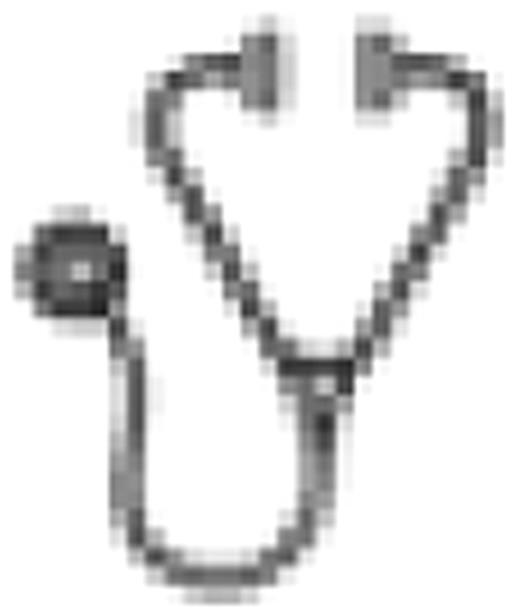Abstract
Abstract 674
Immune recovery is an important determinant in multiple outcomes following allogeneic hematopoietic stem cell transplant (allo-HSCT). Delays in B and T cell reconstitution are associated with an increased risk of infection, relapse and secondary malignancy. Strategies to enhance post-transplant T-cell reconstitution could therefore improve morbidity and mortality after allo-HSCT. The cytokine Interleukin-7 (IL-7) is a unique therapeutic candidate to promote immune reconstitution because it has a central role in T cell development and survival. Murine models of allo-HSCT have demonstrated that IL-7 can enhance thymopoiesis as well as promote peripheral T cell survival and expansion. Initial clinical trials performed with recombinant human IL-7 (rhIL-7) have demonstrated a dose-dependent expansion of CD4+ and CD8+ T cells with an acceptable toxicity profile in patients with solid tumors or HIV infection. Hence we are conducting a phase I trial of post-transplant administration of rhIL-7 (CYT107, Cytheris Inc) in recipients of a T cell depleted (TCD) allo-HSCT to determine the safety, toxicity and biological activity on T cell reconstitution. To date, 9 patients (AML=7, MDS=2), with a median age of 59.3 years (range 27–67 years) have been treated with escalating doses of rhIL-7 (3 at 10 mcg/kg, 6 at 20 mcg/kg) administered subcutaneously weekly for 3 weeks following TCD allo-HSCT from an HLA compatible donor. Accrual is ongoing in the final cohort (30 mcg/kg). Recombinant hIL-7 was started at a median of 96 days post allo-HSCT (range 61–244 days). Most patients experienced transient minor injection site reactions. One patient (20 mcg/kg) developed a biopsy proven hypersensitivity drug rash a week after the first injection and was removed from the study (evaluable for toxicity but not immune recovery endpoints). No other significant injection-related toxicities have occurred, and no patients have developed GVHD. No anti-IL-7 antibodies or neutralizing antibodies have developed following rhIL-7 injection. Two of 9 patients with high-risk AML have relapsed (4 and 9 months post rhIL-7), an incidence consistent with published data in patients undergoing allo-HSCT for AML in CR, irrespective of T-cell depletion. Eight patients remain alive with a median follow-up of 14.5 months post rhIL-7 administration. At baseline, the median T cell counts were 91/mm3 (range 5 – 219 /mm3), 43/mm3 (range 9 – 299 /mm3) and 0 (range 0 – 17 /mm3) for CD4+, CD8+ and CD45RA+ T cells, respectively. Preliminary assessment of the immunological effects of rhIL-7 in 8 evaluable patients has demonstrated an increase in CD4+ T cells exhibiting a naïve or central memory phenotype (69% median increase over baseline at day 21 – range 8% to 35-fold increase), and CD8+ T cells exhibiting a naïve or effector memory phenotype (94% median increase over baseline at day 28 – range 0 to 11-fold increase). There was no observed effect on the frequency of CD4+CD25+FoxP3+ T cells or CD19+ B cells. TCR excision circles (TREC) analysis performed on CD4+ and CD8+ subsets in the first 6 patients, using absolute quantification real-time PCR, demonstrated increases in TRECs in 5/6 patients indicating enhanced T cell production. Finally, all 3 CMV-seropositive patients developed CD8+ T cell CMV-specific responses detected by intracellular IFNγ production to overlapping CMV-pp65 pentadecapeptides peptide pools after administration of rhIL-7. In one patient, we also analyzed CMV-specific T-cell frequency using HLA-A*0201 restricted MHC-tetramers. The highest CMV-specific response levels were noted in this patient with a history of CMV viremia and low-level CMV-specific CD8+ T cells prior to rhIL-7 (5.3-fold increase to the A0201-restricted immunodominant NLV peptide by tetramer assay after rhIL-7). Our pre-clinical data and early clinical results suggest that administration of rhIL-7 in recipients of a TCD allo-HSCT has minimal toxicity and can enhance post-transplant immune recovery without causing GVHD.
Perales:Cytheris: Research Funding. Croughs:Cytheris: Employment, Equity Ownership, Membership on an entity's Board of Directors or advisory committees. Morre:Cytheris: Employment, Equity Ownership, Membership on an entity's Board of Directors or advisory committees. van den Brink:Cytheris: Research Funding.

This icon denotes an abstract that is clinically relevant.
Author notes
Asterisk with author names denotes non-ASH members.

This feature is available to Subscribers Only
Sign In or Create an Account Close Modal